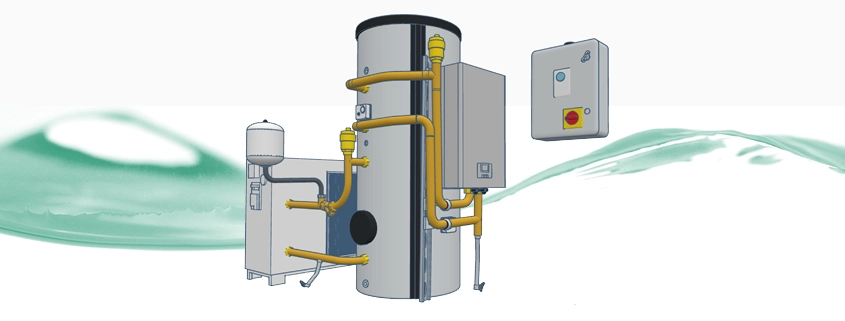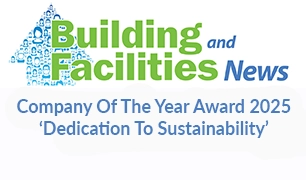Net zero is an immense challenge for the public sector, making 2024 an important starting point for a new sustainable resolution…
Where do you start with sustainability? If this was an ideal world, we would know exactly what to do and all be producing absolutely zero emissions from all of our activities. But this is the real world, which means efforts will be hindered by myriad issues, not least technology and cost. For the near term, most public sector organisations will find absolute net zero either extremely difficult or next to impossible to achieve, so at present, most will be aiming for net zero emissions.
With the government setting targets for other businesses to follow, ensuring the public sector raises its standards is essential. Government aim is to reach the net zero emissions target by 2050, however, there has been growing pressure on the public sector, reflected in the aims of the Public Sector Decarbonisation Scheme, to reduce emissions from public sector buildings by 75% by 2037 (compared to a 2017 baseline) as set out in the 2021 Net Zero and Heat and Buildings strategies. So making a a sustainable resolution is not just sensible it is being encouraged at the highest levels of government.
The latest tranche of grant money offered by the scheme will be up to £230 million, available through 2024/2025, with a budget for 2025/2026 expected to be at a similar level to fund heat decarbonisation and energy efficiency measures. Formal planned projects will have aimed for this grant funding, for which Phase 3c closed to new applications last November.
For organisations which missed this application deadline, or suddenly find themselves facing unplanned requirements to heat buildings, some options can still be instigated sensibly and cost-effectively to support operational planning as well as making new inroads into greater sustainability across premises.
The most common initiator for this sort of activity stems from failure in existing infrastructure, something commonly seen in legacy heating systems, especially where annual servicing or maintenance has lapsed through a need to make cost savings. Rather than a disaster, this can be treated as an opportunity to make small, but meaningful steps towards more sustainable operations. From the perspective as a supplier of hot water systems, the most common issue we see is boiler failures, especially at this time of the year when aging, inefficient systems are overworked and fail under excess strain. Many of these systems, which will be gas-fired can be well over 15 years of age and therefore retained beyond the recommended operational lifespan.
The immediate option is to seek a like-for-like replacement, and although gas has become a dirty word in connotation with net zero, the reality is that modern condensing gas water heaters and boilers provide greater efficiency, demanding less fuel and thereby actively reducing carbon emissions and cutting operational costs. Most appliances will also be future-proof, offering out-of-the-box capability to accept a 20% blend hydrogen/natural gas mix. This allows gas-connected sites to be prepared to accept possible future green gas supplies via the grid. The other alternative is to consider reducing gas demands with renewables, such as solar thermal, or completely transitioning to an all-electric alternative.
The latest innovative technology and processes can be seen in hybrid hot water systems that embrace heat pumps, solar thermal and electric boilers, allowing suppliers to support the sector in addressing the needs to achieve net zero, the circular economy and operational assurance. Better still, these alternatives rely on dependable, well-understood technology that can prove extremely cost-effective, both in terms of capital and operational expenditure.
To ensure any project is successful, especially if transitioning from gas to electric, we would always recommend investing in a short data-collecting exercise. Low-cost and low-impact, Adveco’s Energy Saving Award-winning Live Metering service only takes a month but provides valuable data on existing system demands enabling accurate modelling of a replacement system. This almost guarantees savings, often considerable, and maximises any capital investment.
With system data in hand, what are the best options for making a sustainable resolution?
For the safe delivery of hot water, whether basin-led system or larger shower and bathing demands, flow temperatures in commercial systems are required to reach more than 60°C. Reaching these temperatures is problematic for the current generation of heat pumps, necessitating a hybrid approach. The heat pump operates most efficiently at lower temperatures, so is perfect for supplying year-round preheat to the system and offsetting the energy demands and carbon emissions of top-up heating supplied typically by an electric or gas boiler. Further energy offsetting can be gained through the integration of solar thermal, used to achieve the required higher operating temperatures. In the right location, solar thermal alone can offset up to 30% of your annual energy demands for hot water production, potentially providing all water heating during the summer months when the solar fraction is at its highest. It also lends itself to gas-fired systems as a means of offsetting fossil fuel consumption.
Adveco has a deep heritage working with the public sector, developing often bespoke hot water systems for a range of buildings and usage. Recently it has been developing a pre-sized, compact and fast-to-install system called fusion which combines an electric boiler, a specially designed cylinder and the options of a monobloc air source heat pump and/or electric backup immersion, all with prebuilt pipework. Resilient, able to work with all water conditions and able to effectively eliminate limescale issues typically seen in hard water areas, FUSION offers a long-lasting alternative for refurbishment as well as new build projects. Compared to equivalent gas-fired systems, FUSION also delivers a reduction of up to 71% in carbon emissions, capabilities which recently earned Adveco an Innovation Award, as well as a Commercial Heating Product of the Year accolade.
It’s just one example of how a relatively small, low-impact investment as part of a sustainable resolution can start to make a real change to the way a public sector organisation operates. Whether a school, healthcare, or public safety provider, delivering instant improvements to a building’s comfort and services while advancing sustainability at the same time is a positive move. Learn more about finding your path to net zero or contact us for advice and support for your hot water needs.
















